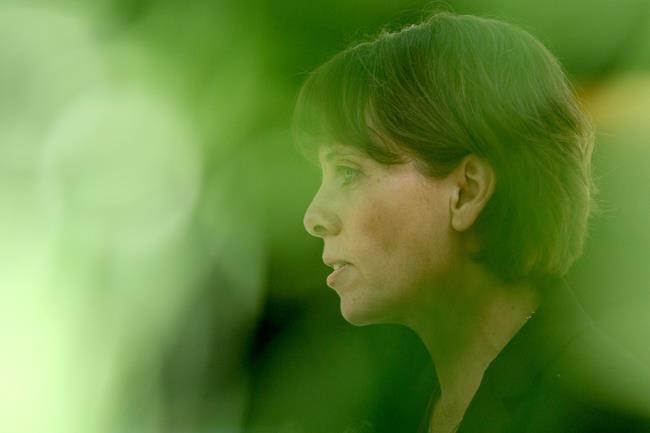Green Leader Sonia Furstenau was driving Monday when she turned on the radio and learned an early election would be called that day in British Columbia.
She felt a kind of disappointment that she says she's felt many times in the past — one that fuels her.
"It's the disappointment that a lot of people feel when these kinds of cynical decisions are made that put a party ahead of the people that we're in here to serve," she said in an interview.
COVID-19 pandemic aside, it's not an ideal time for an election for the Greens.
Furstenau was only named the party's leader one week before the election was called and the Greens have never had the coffers of their political opponents.
On top of that, the Greens have a lot to prove, having won a record-breaking three seats in 2017. After holding the balance of power in the NDP's minority government, Furstenau and her team must demonstrate the party is more than an anomaly and has a sustainable role to play.
So what has prepared her for this uphill battle?
"Everything. I seem to be in a relentless underdog story."
The mother of three children and two step-children, Furstenau, 50, said she was drawn to politics by a sincere hope in a better future.
Her first foray came in 2014, when she ran for local government as part of her fight for clean drinking water in Shawnigan Lake, north of Victoria. For years she wrote letters, attended hearings and organized rallies against a provincial permit that allowed a company to store contaminated soil in the watershed.
"I was told every step of the way this was an unwinnable fight," said Furstenau, who relaxes by knitting dolls in the likeness of people she loves or admires.
The permit was cancelled in 2017.
She won the leadership even as former leader Andrew Weaver told the Vancouver Sun he was advising her two competitors.
"The former leader was clearly working to not have me succeed in that role and I succeeded," she said.
Weaver told the Vancouver Sun newspaper that Furstenau didn't think she needed advice, but if she asked he would be happy to provide it.
Furstenau also overcame obstacles early in life, she said.
She was raised by a single mother in subsidized housing in Edmonton, and benefited from an experimental early childhood education program that meant she entered Grade 1 knowing how to read and write.
In the 1990s, she became a single mother too. But she could go to the University of Victoria because a tuition freeze meant she could afford it, and there was childcare for her young son, she said.
Before entering politics, she worked as a waitress, a bookkeeper and high school teacher.
Furstenau studied history and education in university and had started a PhD in England until examining the public value of her path.
"A friend of mine asked me a question that I really wrestled with, which was how does this help the world?"
Furstenau took it seriously enough to drop out and return to teaching in B.C., where she thought she could have a more direct impact.
She ran for the Greens in 2017 because she said she couldn't get behind NDP or Liberal policies that supported the oil and gas sectors, or didn't do enough in other areas that are important to her, like child welfare reform.
Adam Olsen, the other member of the Green caucus, said Furstenau was not deterred when she ran for a seat in the legislature, even though her Cowichan Valley riding was widely considered an NDP stronghold.
Olsen said he believes Furstenau is comfortable in the leadership role and ready to prove any doubters wrong.
"I think, actually, she cherishes this opportunity to be in this situation to some extent because I think some people have overlooked (her). She's had shade cast on her since the beginning of the campaign to become leader and she shone through that shade," he said.
"I think that will shine through the next 30 days."
If there's one misconception that people have about her, Olsen said it's that Furstenau is a radical activist. She is a strong organizer and advocates for her community, and Olsen said he believes the two get confused.
"She's very very principled and has a very strong moral compass, is very ethical in her approach to governance," Olsen said.
For her part, Furstenau doesn't see "activist" as a dirty word.
"If it means somebody who stands up for a future that's better, then I'm an activist," she said.
"I think so much of the good outcomes that we have are because of people who stand up for what they believe in."
This report by The Canadian Press was first published Sept. 27, 2020.
Amy Smart, The Canadian Press




